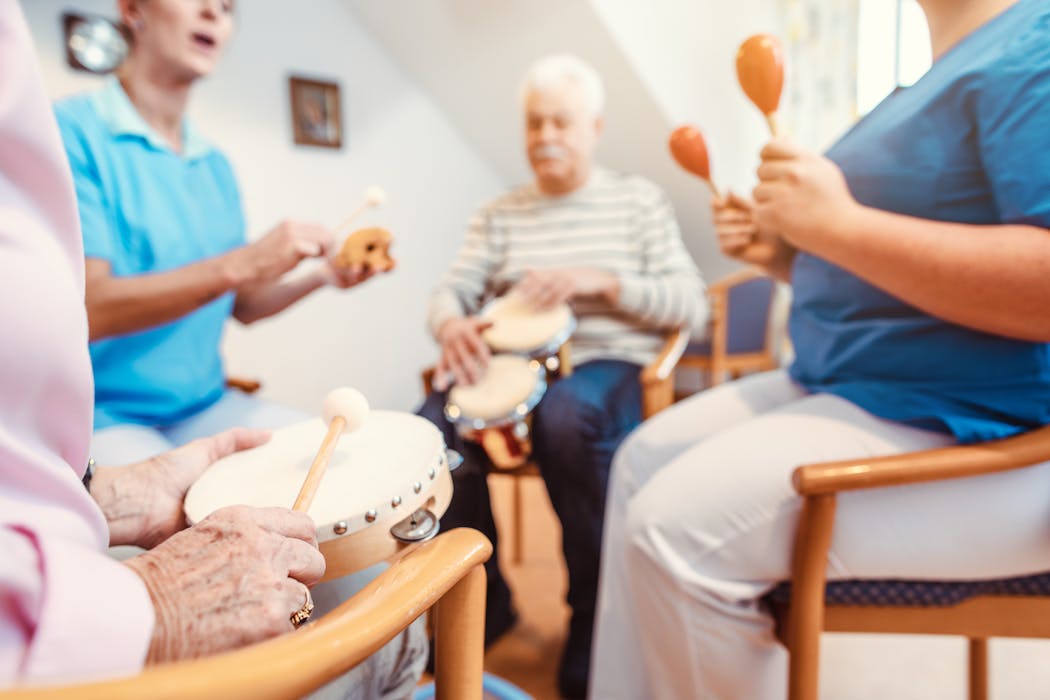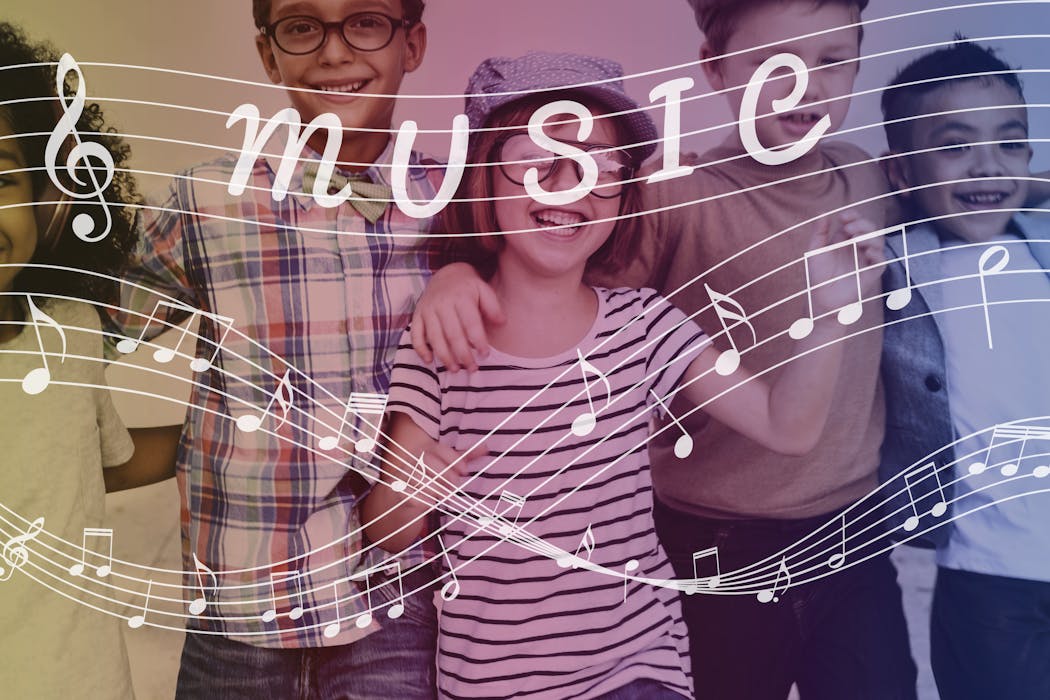Music therapy has been gaining recognition as an effective intervention for individuals with autism spectrum disorder (ASD). This non-invasive and non-pharmacological approach utilizes the power of music to address various developmental and behavioral challenges associated with autism. Music therapy is a structured and evidence-based practice that involves the use of music-based interventions to achieve individualized goals within a therapeutic relationship. It can be delivered in a variety of settings, including schools, clinics, and homes, and is tailored to meet the unique needs of each individual with autism. The positive impact of music therapy on social, emotional, cognitive, and communication skills in individuals with autism has been well-documented, making it an increasingly popular choice for parents and professionals seeking alternative and complementary treatments for autism.
Music therapy for autism encompasses a wide range of techniques and approaches, including improvisation, songwriting, lyric analysis, and receptive music listening. These interventions are designed to address specific areas of need, such as social interaction, emotional expression, sensory integration, and cognitive processing. Music therapists work closely with individuals with autism to create a safe and supportive environment where they can explore and engage with music in ways that promote growth and development. By harnessing the inherent qualities of music, such as rhythm, melody, and harmony, music therapy offers a unique and powerful means of connecting with individuals with autism and facilitating their progress towards improved functioning and quality of life.
The Role of the Brain in Music Perception and Processing
The human brain is intricately involved in the perception and processing of music, and this is particularly relevant in the context of autism spectrum disorder. Research has shown that individuals with autism often exhibit atypical patterns of brain activity in response to auditory stimuli, including music. Studies using neuroimaging techniques have revealed differences in the way the brains of individuals with autism process musical information, such as pitch, timbre, and rhythm. These neurobiological differences may contribute to the challenges that individuals with autism experience in processing and responding to social and emotional cues in their environment.
The brain’s response to music involves a complex interplay of neural networks that are responsible for auditory perception, emotion regulation, and social cognition. In individuals with autism, these networks may be altered or disrupted, leading to difficulties in understanding and interpreting musical stimuli. Music therapy aims to capitalize on the brain’s inherent capacity for neuroplasticity by providing structured and meaningful musical experiences that can help rewire and reorganize neural pathways. By engaging with music in a therapeutic context, individuals with autism can potentially strengthen their brain’s ability to process and respond to auditory information, leading to improvements in social communication, emotional expression, and overall functioning.
The Impact of Music Therapy on Social and Emotional Development in Individuals with Autism
Social and emotional development is a core area of challenge for individuals with autism spectrum disorder, and music therapy has been shown to have a significant impact on these domains. Through the use of musical activities and interactions, music therapy provides individuals with autism opportunities to practice and refine their social skills, such as turn-taking, joint attention, and nonverbal communication. Music-based interventions also offer a safe and enjoyable context for individuals with autism to express and regulate their emotions, which can be particularly beneficial for those who struggle with emotional self-regulation.
Research has demonstrated that music therapy can enhance social engagement and interaction in individuals with autism by promoting positive social behaviors, such as sharing, cooperation, and empathy. Musical experiences can also foster a sense of connectedness and belonging within a group setting, which is essential for developing meaningful relationships and building social support networks. Furthermore, music therapy interventions that focus on emotional expression and regulation can help individuals with autism develop greater awareness of their own emotions and improve their ability to communicate their feelings to others. By addressing social and emotional challenges through music-based interventions, music therapy offers a holistic approach to supporting the overall well-being of individuals with autism.
Neurological Mechanisms Behind the Effectiveness of Music Therapy for Autism
The effectiveness of music therapy for autism can be attributed to its impact on the neurological mechanisms that underlie the condition. Music has the ability to engage multiple areas of the brain simultaneously, including those involved in auditory processing, motor coordination, emotional regulation, and memory. This multisensory stimulation can lead to widespread activation of neural networks that are essential for various aspects of functioning, such as attention, learning, and social interaction. In individuals with autism, who often exhibit atypical patterns of brain activity, music therapy can help modulate neural responses and promote more adaptive functioning.
Neuroscientific research has shown that engaging with music can lead to changes in brain structure and function, particularly in areas related to sensory processing, emotional regulation, and social cognition. For example, studies have demonstrated that musical training can enhance connectivity between different regions of the brain, leading to improvements in auditory processing and language skills. In the context of autism, where difficulties in these areas are common, music therapy may offer a promising avenue for promoting neuroplasticity and facilitating positive changes in brain organization. By targeting specific neural pathways through music-based interventions, music therapy has the potential to reshape the brain’s response to sensory input and promote more efficient processing of social and emotional information.
The Use of Music Therapy in Language and Communication Development for Individuals with Autism
Language and communication deficits are hallmark features of autism spectrum disorder, and music therapy has emerged as a valuable tool for addressing these challenges. Music-based interventions can provide individuals with autism opportunities to practice and refine their communication skills in a supportive and engaging context. For example, singing, chanting, and vocal improvisation activities can help individuals with autism develop their expressive language abilities by encouraging vocalization and verbalization. Similarly, rhythmic activities, such as drumming or clapping, can support the development of motor speech skills by promoting coordination and fluency.
In addition to enhancing expressive language skills, music therapy can also facilitate receptive language development in individuals with autism. Receptive music listening activities can help improve auditory processing abilities by training individuals to attend to and discriminate between different sounds. This can have a positive impact on their ability to understand speech and language in everyday communication settings. Furthermore, music therapy interventions that incorporate visual supports, such as picture symbols or written lyrics, can help individuals with autism make connections between auditory input and symbolic representation, which is essential for developing reading and writing skills. By targeting language and communication deficits through music-based interventions, music therapy offers a dynamic approach to supporting the diverse needs of individuals with autism.
Incorporating Music Therapy into Comprehensive Treatment Plans for Autism
As our understanding of autism spectrum disorder continues to evolve, there is growing recognition of the importance of comprehensive treatment approaches that address the diverse needs of individuals with autism. Music therapy has emerged as a valuable component of such comprehensive treatment plans due to its ability to target multiple areas of functioning simultaneously. By integrating music-based interventions into existing therapeutic programs for autism, professionals can provide individuals with a holistic approach to addressing their developmental and behavioral challenges.
Music therapy can be seamlessly integrated into a variety of settings where individuals with autism receive services, including schools, clinics, residential facilities, and community-based programs. By collaborating with other professionals, such as speech-language pathologists, occupational therapists, behavior analysts, and special educators, music therapists can create interdisciplinary treatment plans that address the unique needs of each individual with autism. This collaborative approach allows for the seamless integration of music therapy into existing interventions for autism, ensuring that individuals receive comprehensive support across all areas of development.
Future Directions in Research and Application of Music Therapy for Autism
The field of music therapy for autism is rapidly evolving as researchers continue to explore its potential applications and mechanisms of action. Future research efforts are likely to focus on elucidating the specific neurobiological changes that occur in response to music therapy interventions in individuals with autism. By using advanced neuroimaging techniques, such as functional magnetic resonance imaging (fMRI) and electroencephalography (EEG), researchers can gain insights into how music therapy modulates brain activity and connectivity in individuals with autism.
In addition to neuroscientific investigations, future research may also explore the long-term effects of music therapy on various aspects of functioning in individuals with autism. Longitudinal studies that track the progress of individuals who receive music therapy over extended periods of time can provide valuable information about the sustained impact of this intervention on social, emotional, cognitive, and communication skills. Furthermore, research efforts may also focus on identifying specific factors that contribute to the effectiveness of music therapy for autism, such as individualized treatment approaches, dosage of intervention, and therapist-client interactions.
In terms of application, future directions in music therapy for autism may involve expanding access to this intervention for underserved populations and exploring innovative delivery models. Efforts to increase awareness about the benefits of music therapy for autism among parents, professionals, and policymakers can help ensure that more individuals have access to this valuable intervention. Additionally, advancements in technology may open up new possibilities for delivering music therapy remotely through telehealth platforms, making it more accessible to individuals who live in rural or underserved areas.
In conclusion, music therapy holds great promise as an effective intervention for addressing the diverse needs of individuals with autism spectrum disorder. By harnessing the power of music to target social, emotional, cognitive, and communication challenges associated with autism, music therapy offers a dynamic approach to supporting the overall well-being of individuals with this condition. As research continues to advance our understanding of the neurological mechanisms behind the effectiveness of music therapy for autism, it is likely that this intervention will become an increasingly integral component of comprehensive treatment plans for individuals with autism. By embracing future directions in research and application of music therapy for autism, we can work towards ensuring that all individuals have access to the transformative benefits that this intervention has to offer.
Find out how Torongo Therapyplus can help you with your needs. Get in touch with us at smile@torongo.life, or call us on 02 8809 9965.































